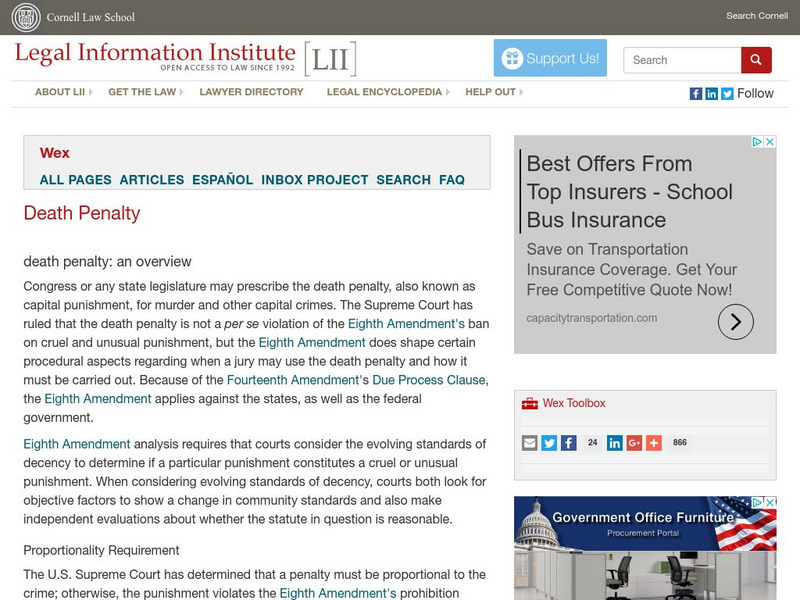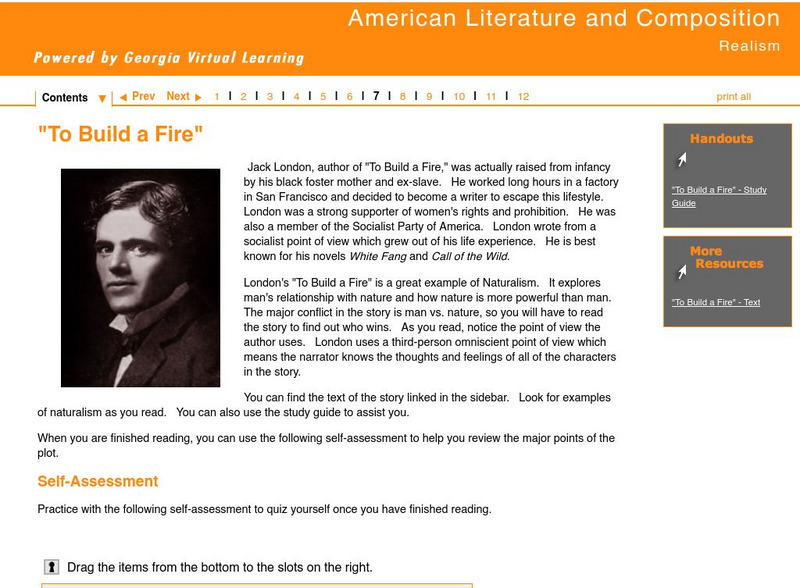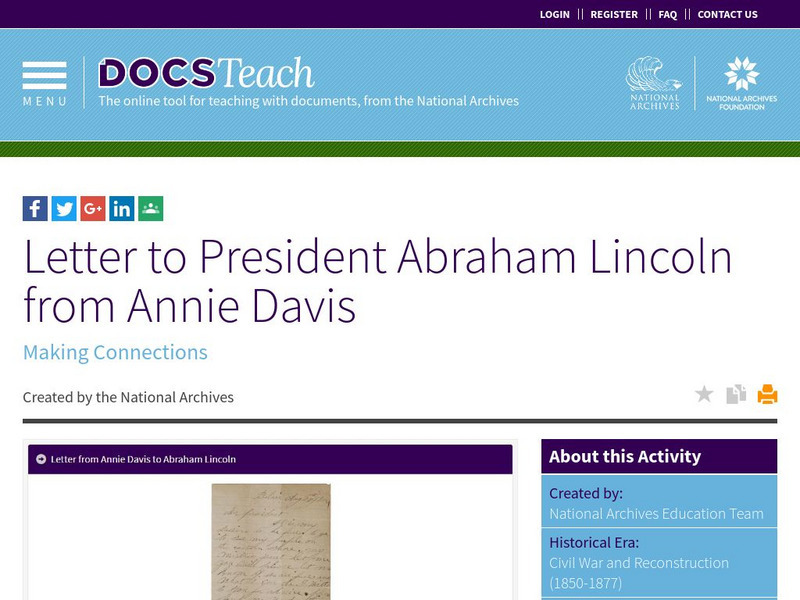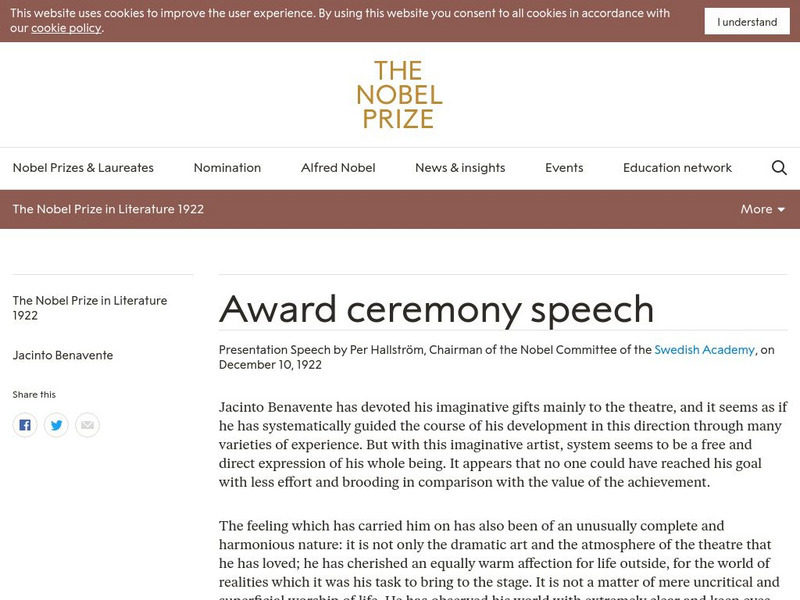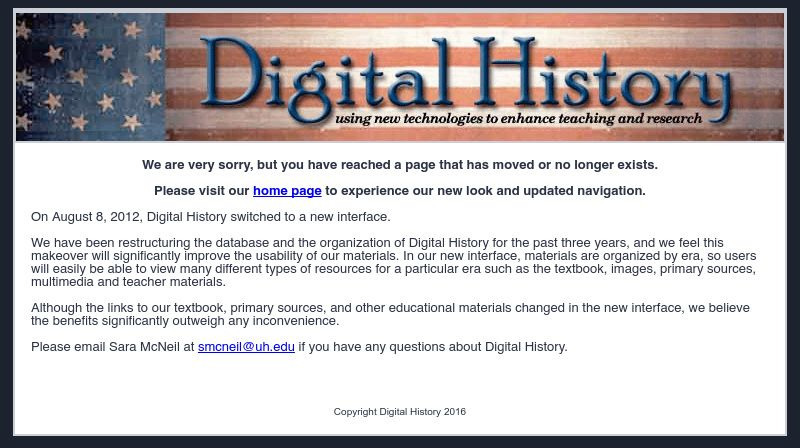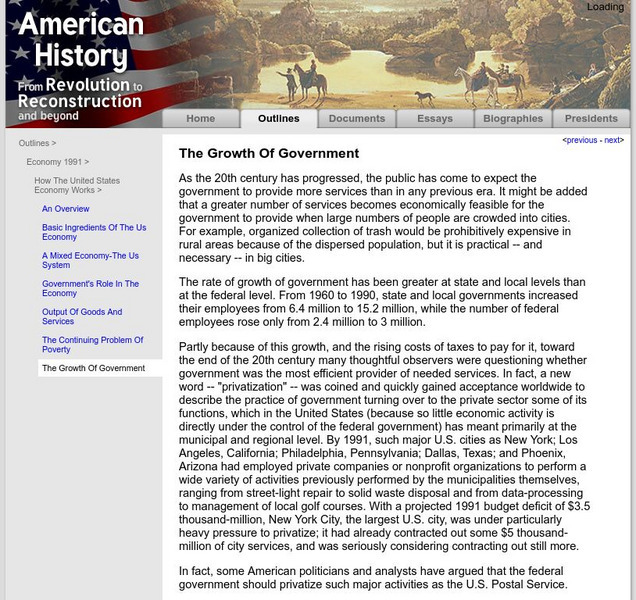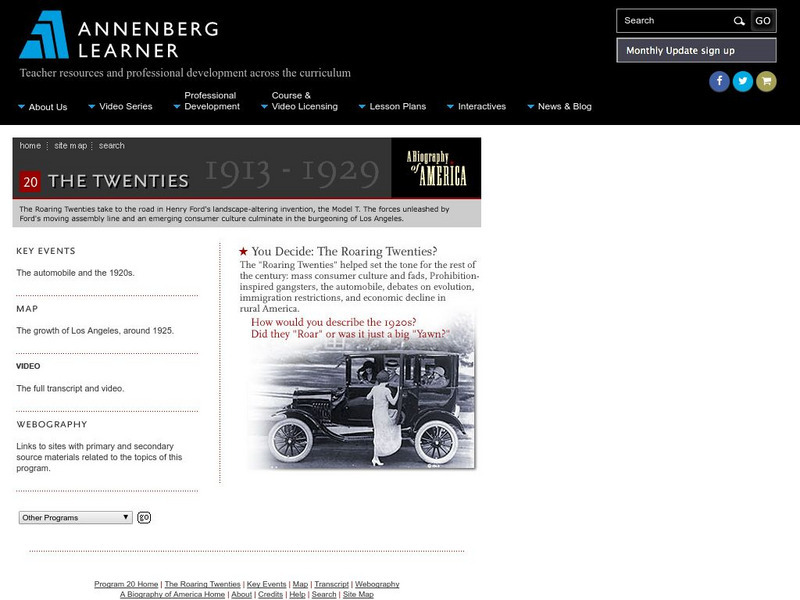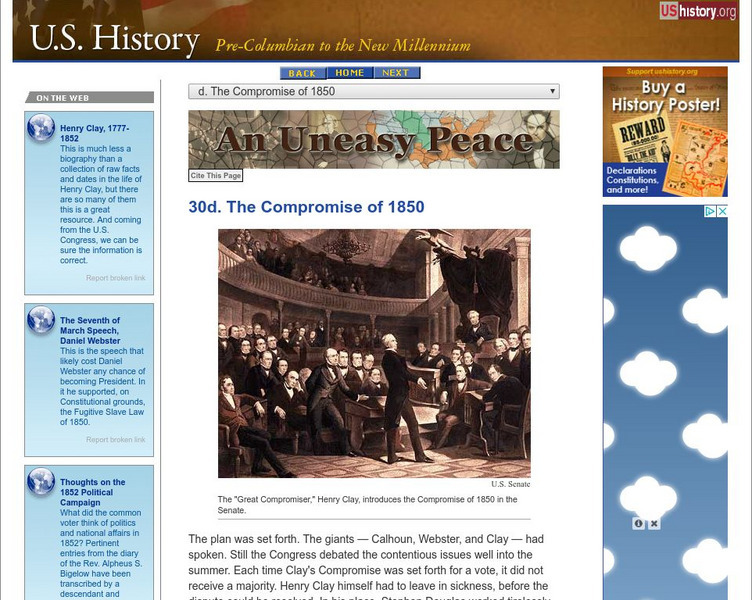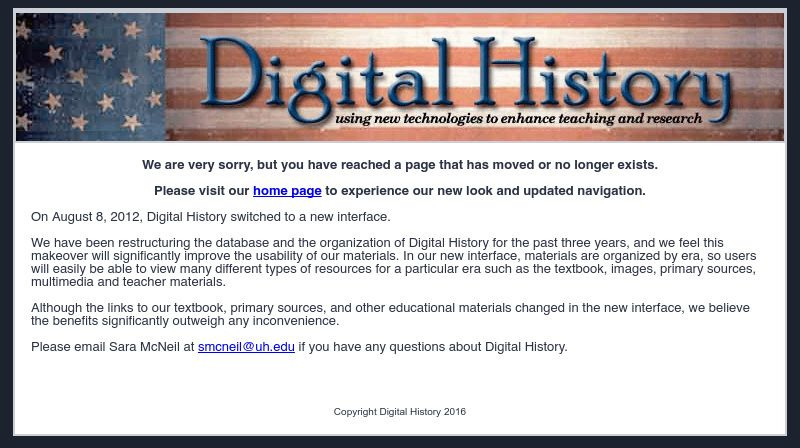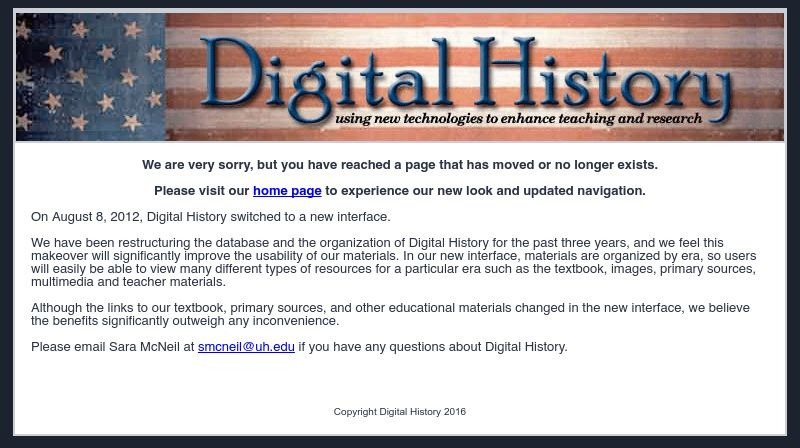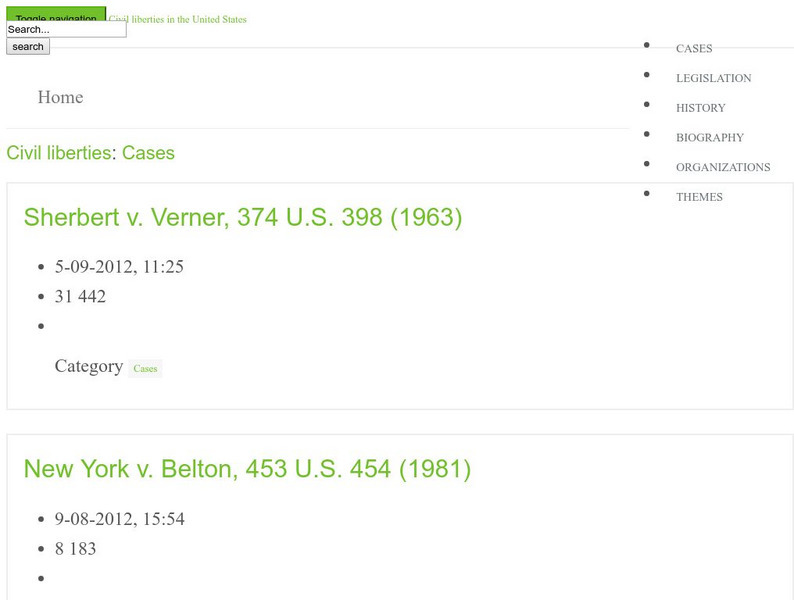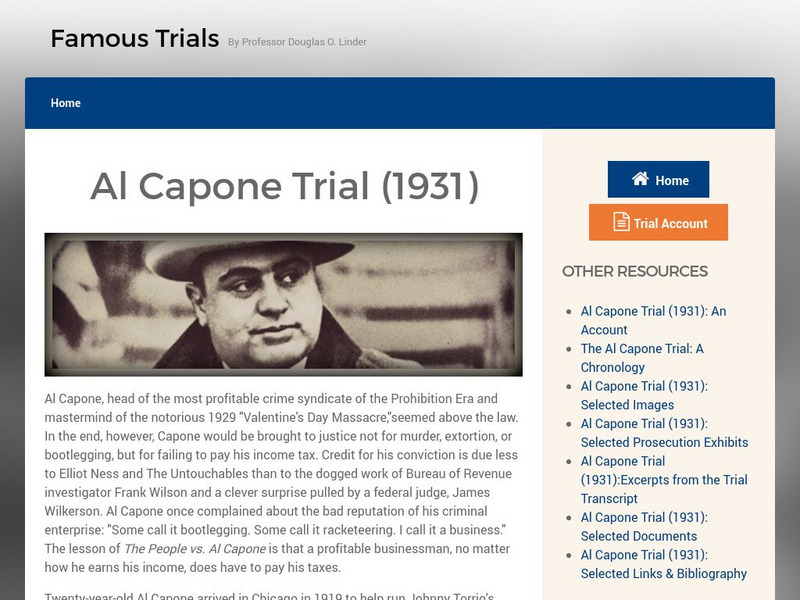US Government Publishing Office
U.s. Government Publishing Office: Thirteenth Amendment [Pdf]
Complete text of the thirteenth amendment of the United States Constitution.
Cornell University
Cornell University: Law School: Law About.. The Death Penalty
This Cornell site gives an overview of the death penalty issue and links to federal, state and other resources on the issue.
Georgia Department of Education
Ga Virtual Learning: Realism: "To Build a Fire" by Jack London
This lesson focuses on the short story "To Build a Fire" by Jack London which provides a good example of Naturalism, the relationship between man and nature. It features links to a PDF study guide and an online copy of the text. After...
US National Archives
National Archives: Letter to President Abraham Lincoln From Annie Davis
"Will you please let me know if I am free?" wrote Annie Davis. Annie Davis was a slave who wrote this letter to President Lincoln 20 months after the Emancipation Proclamation. To understand her confusion, examine the following documents...
Nobel Media AB
The Nobel Prize: The Nobel Prize in Literature 1922 Award Ceremony Speech
Here is the 1922 Nobel Prize in Literature Presentation Speech, through which Per Hallstrom discusses and praises the elements and strengths of Benavente's dramas.
Other
University of Montana: Wilderness Connect: Stewardship
This resource provides information about wilderness preservation. Lists questions in four categories and provides extended responses to each of them.
Digital History
Digital History: Scopes Trial
A fascinating look at the Scopes Trial in Tennessee where a science teacher was accused of violating a state law which prohibited the teacing of evolution. Perhaps the most interesting part of this article is the discussion of the...
University of Groningen
American History: Outlines: The Growth of Government
As the 20th century has progressed, the public has come to expect the government to provide more services than in any previous era. It might be added that a greater number of services becomes economically feasible for the government to...
TED Talks
Ted: Ted Ed: Speech Acts: Constative and Performative
When are words just words, and when do words force action? Linguist J.L. Austin divided words into two categories: constatives (words that describe a situation) and performatives (words that incite action). For instance, is a "No...
University of Notre Dame
University of Notre Dame: The Story of the Steel Seizure Case [Pdf]
Read about how President Roosevelt used his presidential powers to prohibit labor strikes during World War II. Scroll to page 4 of this PDF to read this background information which is part of a discussion about President Truman's...
PBS
Pbs News Hour Extra: Us Repeals Ban on Gays Serving Openly in Military
In the last days of its December 2010 session, the United States Congress voted to repeal the "Don't Ask, Don't Tell" policy. This policy prohibited gays and lesbians from serving openly in the military. The majority of troops serving...
Annenberg Foundation
Annenberg Learner: A Biography of America: The Twenties 1913 1929
How would you describe the 1920s? The decade was called the Roaring Twenties, the beginning of modern America. Take a look at the economic prosperity, prohibition, popular culture, and the invention of the automobile, then you decide, a...
Independence Hall Association
U.s. History: The Compromise of 1850
Find the various parts of the Compromise of 1850, proposed by Henry Clay, that extended slavery in some cases, prohibited in others, and added California as a free state. A clear chart shows what parts of the law were beneficial to the...
Annenberg Foundation
Annenberg Learner: You Decide: The Roaring Twenties?
Read about prohibition, prosperity, the role of the automobile and popular culture to decide if the 1920s were a roar or a big yawn. How would you describe the 1920s?
Council for Economic Education
Econ Ed Link: The Choice Is Us: Monopolies
This lesson introduces the concept of monopoly. It calls upon students to consider how monopoly power might affect the quality and price of goods and services offered to consumers. In light of what they learn about the history of trusts...
Bill of Rights Institute
The Bill of Rights Institute: The Bill of Rights
The first 10 amendments to the Constitution make up the Bill of Rights. Written by James Madison in response to calls from several states for greater constitutional protection for individual liberties, the Bill of Rights lists specific...
Digital History
Digital History: Civil Rights Act of 1964
A brief description of the Civil Rights Act of 1964, the opposition against it, and how the law prohibited discrimination in voting, housing, public facilities, and employment.
Digital History
Digital History: Antislavery Timeline
A timeline of actions tied to the prohibition of or ending of slavery from the meeting of the Continental Congress in 1774 to John Brown's raid on Harper's Ferry in 1859.
Other
Civil Liberties: Lyng v. Northwest Indian Cemetery Protective Association
How does the constitution resolve a conflict between the government's property rights and the right of groups to engage in religious practices on lands they consider sacred? The Supreme Court answered that question in favor of the...
iCivics
I Civics: Bethel School District v. Fraser (1986)
This mini-lesson covers the basics of the Supreme Court's decision that established a school's ability to prohibit inappropriate student language on campus. Young scholars learn about the First Amendment right of free speech, and explore...
iCivics
I Civics: Texas v. Johnson (1989)
This mini-lesson covers the basics of the Supreme Court's decision that burning the American flag is a form of political speech protected by the First Amendment. Students learn about the First Amendment freedom of speech and the...
iCivics
I Civics: Miranda v. Arizona (1966)
This mini-instructional activity covers the basics of the Supreme Court's decision that prohibited a suspect's statements from being used as evidence unless the suspect has been advised of his or her rights to remain silent. Middle...
iCivics
I Civics: Eeoc v. Abercrombie & Fitch (2015)
This mini-lesson explores the Supreme Court's decision regarding a company's discrimination against a Muslim woman during the hiring process. Learners learn how Title VII of the Civil Rights Act of 1964 prohibits workplace...
University of Missouri
Famous Trials: Famous Trials: Al Capone Trial (1931)
Al Capone was Public Enemy No. 1, who managed to evade prosecution for his many crimes. Read this lengthy and interesting account of his eventual trial, see pictures of people involved, find a chronology of Capone's exploits, and read...
Other popular searches
- Prohibition in the 1920's
- Prohibition 1920
- Prohibition in the 1920s
- Prohibition of 1920
- Prohibition Lesson Plan
- 1920s and Prohibition
- Prohibition Canada
- Roaring 1920s Prohibition
- Lessons on Prohibition
- Prohibition in 1910
- Prohibition Women's Suffrage
- Prohibition Womens Suffrage


![U.s. Government Publishing Office: Thirteenth Amendment [Pdf] Primary U.s. Government Publishing Office: Thirteenth Amendment [Pdf] Primary](https://d15y2dacu3jp90.cloudfront.net/images/attachment_defaults/resource/large/FPO-knovation.png)
